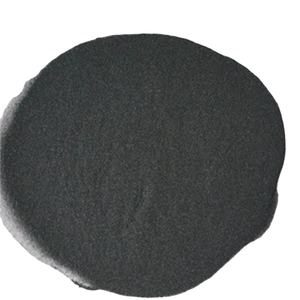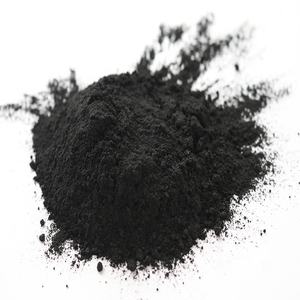Professional and high-quality metal alloys, ceramic products and concrete additives | RBOSCHCO
PRODUCT PARAMETERS
Description
Overview of Silicon Carbide SiC
Silicon Carbide (SiC) is an inorganic non-metallic material composed of silicon and carbon elements with unique physical and chemical properties. It has high hardness, strength, wear resistance, thermal stability, and good chemical stability, which make SiC an ideal material in many fields. The high hardness of SiC makes it the preferred material for ceramics, abrasives, and cutting tools. In contrast, its high thermal stability makes it widely used in high-temperature furnaces, heat exchangers, and aerospace fields. In addition, SiC also has good conductivity and is therefore used in the fields of electronics and semiconductors. As a high-performance ceramic material, SiC plays an essential role in the development of technology and industry, making significant contributions to the progress of modern society.
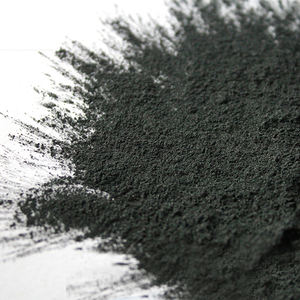
(Silicon Carbide SiC CAS 409-21-2)
Features of Silicon Carbide SiC
High hardness and strength: SiC has exceptionally high hardness and strength, second only to diamond, making it an ideal wear-resistant and impact-resistant material.
High thermal stability: SiC can maintain structural stability in environments with temperatures even exceeding 1600 ° C, making it suitable for high-temperature applications.
Good chemical stability: SiC exhibits good stability to various chemical media and is not easily corroded.
Excellent thermal conductivity: SiC has a high thermal conductivity, making it an efficient heat exchange material.
Good conductivity: SiC has semiconductor properties and can be used in the fields of electronics and semiconductors.
Low coefficient of thermal expansion: SiC has a small thermal expansion when subjected to temperature changes, making it suitable as a high-temperature structural material.
Parameter table of Silicon Carbide
| Parameter | Value Range |
|---|---|
| Density | 3.21 g/cm³ – 3.22 g/cm³ |
| Flexural Strength | 300 MPa – 500 MPa |
| Compressive Strength | 2000 MPa – 3000 MPa |
| Hardness (Vickers) | 2300 HV – 3200 HV |
| Thermal Conductivity | 120 W/m·K – 260 W/m·K |
| Coefficient of Linear Expansion | 4.5 × 10⁻⁶/℃ – 5.6 × 10⁻⁶/℃ |
| Melting Point | 2700 °C |
| Electrical Properties | High electron saturation velocity, wide bandgap |
| Temperature Stability | Can operate at temperatures above 300 °C |
Application of Silicon Carbide SiC
Ceramic and abrasive industry: SiC is widely used in ceramic products, grinding tools, and cutting tools due to its high hardness and wear resistance.
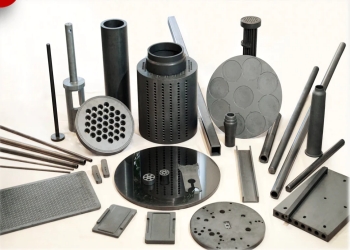
Application of Silicon Carbide SiC
High-temperature stoves and thermal equipment: The exceptional heat resistance and minimal thermal expansion of SiC make it an ideal material for components that operate at extremely high temperatures, such as stoves, burners, heat exchangers, and other equipment that relies on thermal energy.
Aerospace field: SiC’s lightweight, high strength and high thermal stability make it widely used in aerospace fields, such as rocket nozzles and aircraft engine components.
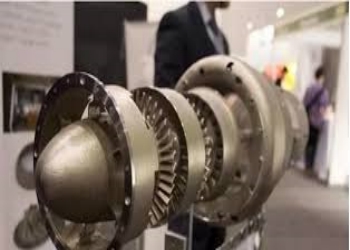
Application of Silicon Carbide SiC
Electronic devices and semiconductors: SiC’s semiconductor attributes make it prospective for applications in electronic devices and semiconductors, such as power digital gadgets and incorporated circuit substratum.
Automotive and Mechanical Design: SiC’s high solidity and use resistance make it a promising product for mechanical components such as automobile engine parts, bearings, and equipment.
Atomic energy and chemical market: SiC’s chemical and high thermal security make it potentially useful in tools and parts such as atomic power plants and chemical activators.
Production Method of Silicon Carbide
The production method of Silicon Carbide (SiC) mainly includes three categories: solid-phase, liquid-phase, and gas-phase methods.
In the solid-phase method, solid reactants are mixed and heated to high temperatures to form SiC. The liquid-phase method involves dissolving silicon and carbon sources in a solution and then precipitating or crystallizing SiC through chemical reactions. The gas-phase method utilizes gases or vaporized reactants to form SiC through chemical reactions at high temperatures, followed by condensation.
Among them, the Acheson process (a type of solid-phase method) is widely used due to its low raw material cost and simple operation.
Company Profile
RBOSCHCO is a trusted global chemical material supplier & manufacturer with over 12-year-experience in providing super high-quality chemicals and nanomaterials, including boride powder, nitride powder, graphite powder, sulfide powder, 3D printing powder, etc.
The company has a professional technical department and Quality Supervision Department, a well-equipped laboratory, and equipped with advanced testing equipment and after-sales customer service center.
If you are looking for high-quality Silicon Carbide SiC , please feel free to contact us or click on the needed products to send an inquiry.

Storage Condition of Silicon Carbide
The storage condition of Silicon Carbide (SiC) primarily involves keeping it in a cool, dry, and sealed environment. Specially, SiC should be stored at temperatures below -20°C or at room temperature in a desiccated airtight container to prevent moisture absorption and contamination. It should alsoeeds to steer clear of from straight sunshine and fixed power to prevent any type of prospective destruction or security dangers. Appropriate storage space guarantees the lasting security and efficiency of SiC products.
Payment Term
L/C, T/T, Western Union, Paypal, Credit Card etc.

Shipment Term
By sea, by air, by express, as customers request.
5 FAQs of Silicon Carbide
Q1
What are the main applications of Silicon Carbide SiC in the ceramic industry?
Answer: The primary application of Silicon Carbide (SiC) in the ceramic sector is as a strengthening agent and wear-resistant product. Because of its high firmness, stamina, and excellent chemical security, SiC boosts the wear resistance and sturdiness of ceramic items, boosting their top quality and life span.
Q2
What are the advantages of Silicon Carbide SiC in high-temperature furnaces?
Answer: The benefit of Silicon Carbide (SiC) in high-temperature heating systems hinges on its superb high-temperature security and reduced coefficient of thermal growth. This allows SiC products to hold up against exceptionally heats without contortion, keeping the heater’s security and sturdiness and thus prolonging its life span.
Q3
What are the applications of Silicon Carbide SiC in the aerospace field?
Answer: In the aerospace area, Silicon Carbide (SiC) is extensively utilized in the production of high-temperature architectural products and thermal safety layers. Because of its lightweight, high toughness, and high thermal security, SiC can withstand severe workplace and high-temperature oxidation, providing efficient thermal defense and architectural assistance for aerospace lorries.
Q4
Why is Silicon Carbide SiC suitable as a material in the electronics and semiconductor fields?
Answer: Silicon Carbide SiC is suitable as a material in the fields of electronics and semiconductors because it has good conductivity and semiconductor properties. SiC has high electron mobility and low resistivity, making it an ideal choice for manufacturing power electronic devices, integrated circuit substrates, and other electronic products.
Q5
What are the preparation methods for Silicon Carbide SiC?
Answer: The preparation methods of Silicon Carbide SiC include chemical vapor deposition, carbon thermal reduction, melting, etc. Among them, chemical vapor deposition is a commonly used preparation method, which converts gaseous precursors into SiC solid materials through chemical reactions at high temperatures. It has the advantages of low preparation temperature and high material purity.
REQUEST A QUOTE
RELATED PRODUCTS
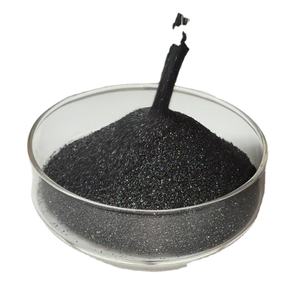
Supply High Purity Mn3C Powder Price Manganese Carbide
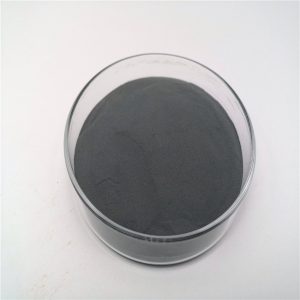
Advanced Ceramics Series Titanium Aluminum Carbide Ti3AlC2 Powder
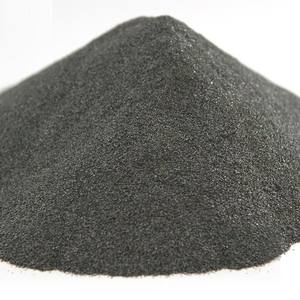
Molybdenum Carbide Powder CAS 12627-57-5 Mo2C Powder Price
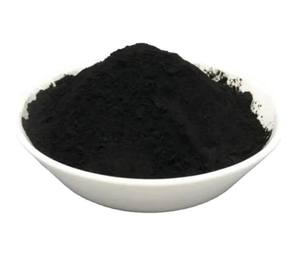
Niobium Carbide NbC Powder CAS 12069-94-2
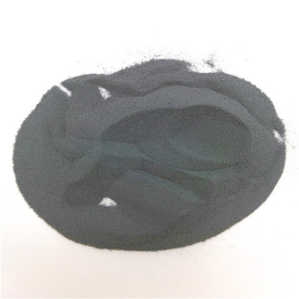
CAS 12070-06-3 High Purity 99.5% TaC Powder for Ceramics Price Tantalum Carbide
